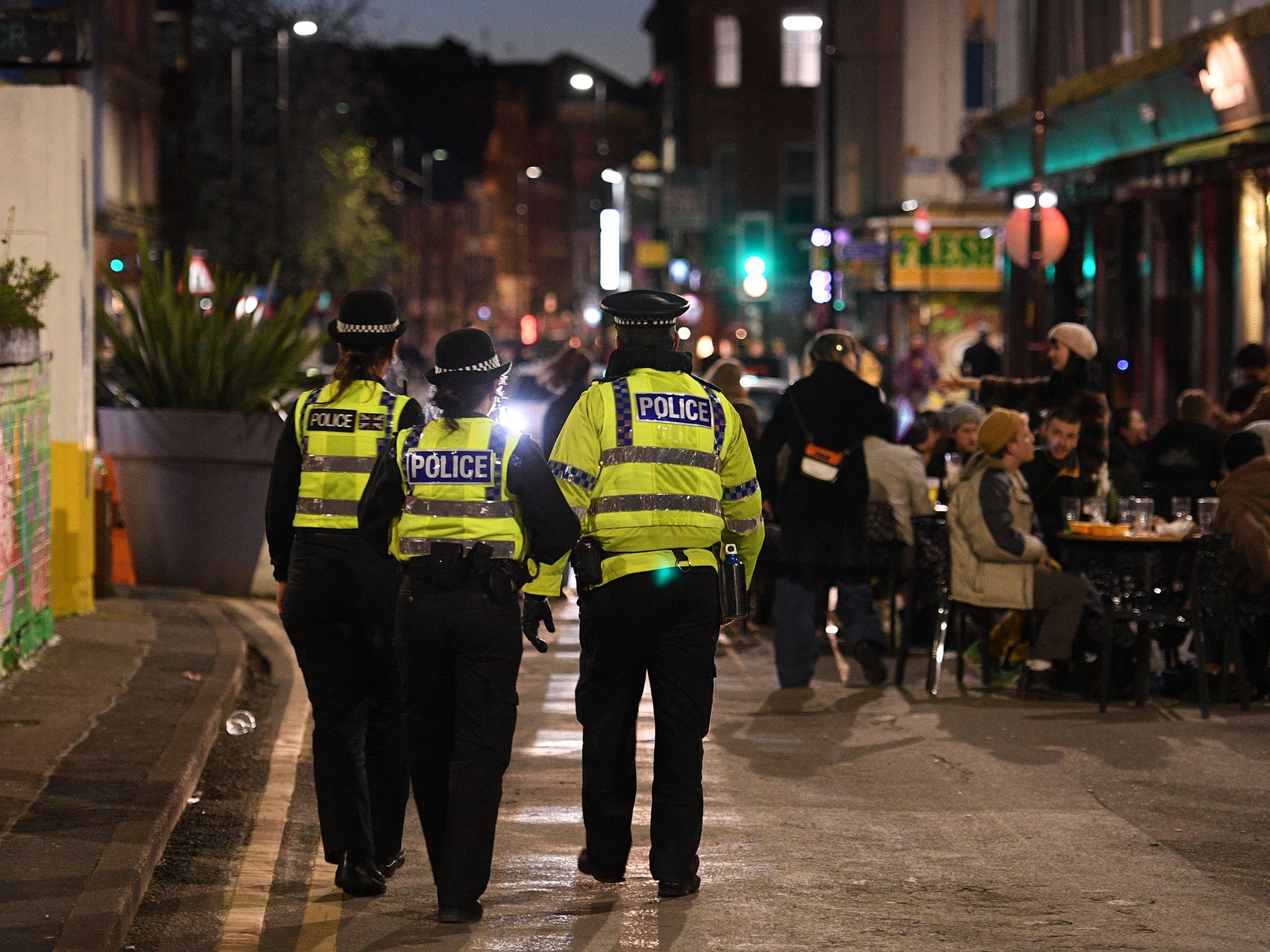Government made policing pandemic harder with ‘ever-changing Covid rules’, police leaders say
Speed of changes left officers going out on patrol ‘with no detail’ of what legal changes meant

The government made policing during the coronavirus pandemic “even harder” with rapidly changing and unclear laws, police leaders have said.
The chair of the Police Federation, which represents rank-and-file officers across England and Wales, said they had been put in an “extraordinary” position.
“For the past 15 months we have been required to police in a way that none of us ever expected to when we joined the job,” John Apter told the body’s annual conference on Wednesday.
“We knew it was never going to be easy. But our job was made even harder by the ever changing rules and regulations.”
Addressing Priti Patel, Mr Apter said officers had been going out on patrol “literally hours after the new regulations were introduced”.
He added: “They had often received no detailed briefing because the laws had only just been passed, which meant they were often going out on patrol with no specific detail about what the change meant for policing.
“There was no discussion about how to deal with the new laws or the new guidance and let’s be honest home secretary, the rules were not always crystal clear.”
Mr Apter said mistakes had been made as a result of the way laws were introduced, and that police had unfairly become the focus of blame.
Martin Hewitt, chair of the National Police Chiefs’ Council, told the conference that he had expressed “frustration” at the speed of changes and differences between areas of the UK.
“At the beginning it was very hard,” he added. “I’ve expressed that frustration a number of times about the last-minute nature of us understanding what the regulations were going to be.”
He said police leaders had created a model, meaning officers had to explain the law to people suspected of breaking Covid legislation and encourage them to follow it voluntarily, before moving to fines and arrests.

However, a Crown Prosecution Service review has found that at least a third of coronavirus prosecutions have been wrongful, and legal campaigners are calling for the more than 115,000 fines so far issued in England and Wales to be checked.
The home secretary said police officers should not have been “vilified” for trying to “do the right thing” in the early stages of the pandemic.
Ms Patel said the government had worked with police leaders and kept them informed but admitted: “You’re never going to get it all right in one go.”
“It’s never going to be perfect but the guidance we put out and the changes we brought in through legislation were not always popular but we know they helped to save lives,” she added.
“We worked with policing when it came to guidance and the advice that was put out. Look at the way the public responded. We had some spiky moments but by and large the public complied, the public understood.”
Rank-and-file police officers were not told of the first national lockdown before it was announced by Boris Johnson on 23 March 2020.
The prime minister told the public that if they did not follow unprecedented rules, “the police will have the powers to enforce them”, but laws underpinning restrictions did not come into force for days and have since changed more than 70 times in England alone.
A previous survey by the Police Federation, which represents more than 130,000 officers in England and Wales, found that only one in 10 thought that Covid-19 laws were “clear”.
Police representatives had expressed concerns to the government about the “tiers” laws that changed from area to area, and “limits on capacity” for enforcing aspects such as the wearing of face coverings in supermarkets.
In April 2020, reports issued by two parliamentary committees also warned that gaps between guidance issued by the government and the law were creating confusion among the police and public.
Government guidance has been stricter than the law for most of the pandemic, for example saying that people must only make “essential” journeys or exercise outside once a day, when the Health Protection Regulations did not impose those limits.
Kit Malthouse, the policing minister, told the Police Federation conference that the government could not “legislate for all public behaviour”.
He said the government had tried to ensure police officers were “as clear as they possibly could be”.
Join our commenting forum
Join thought-provoking conversations, follow other Independent readers and see their replies
Comments


Bookmark popover
Removed from bookmarks